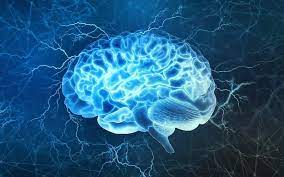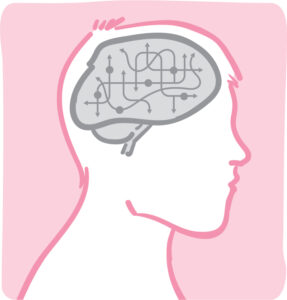Addiction can be an overwhelming and life-altering challenge. Whether it’s substance abuse, gambling, or even technology addiction, the road to recovery can be difficult to navigate alone. This is where addiction psychologists come into play. In this comprehensive guide, we’ll delve into the world of addiction psychology, explore the signs of addiction, and discuss the vital role that addiction psychologists play in the recovery process. Moreover, we’ll guide you on how to find an addiction psychologist near you, ensuring you get the support you need.
Contents
Understanding Addiction Psychology

Understanding addiction psychology involves delving into the complex interplay of biological, psychological, and social factors that contribute to the development and maintenance of addiction. Addiction is a chronic disease characterized by compulsive drug seeking and use, despite harmful consequences. Here are some key aspects of addiction psychology:
Biological Factors:
- Genetics: Genetic factors play a significant role in addiction susceptibility. Some individuals may have a genetic predisposition that makes them more vulnerable to addiction.
- Neurobiology: Addictive substances often target the brain’s reward system. Drugs can hijack the brain’s natural reward pathways, leading to a cycle of craving and consumption.
Psychological Factors:
- Psychological Vulnerability: Individuals with underlying mental health issues such as depression, anxiety, or trauma are at a higher risk of addiction. Substance use may be a way to self-medicate or cope with emotional pain.
- Personality Traits: Certain personality traits, such as impulsivity, sensation-seeking, and risk-taking behavior, are associated with an increased likelihood of addiction.
Role of an Addiction Psychologist
An addiction psychologist plays a crucial role in the assessment, treatment, and support of individuals struggling with substance use disorders and addictive behaviors. Their work is essential in helping individuals overcome addiction and achieve long-term recovery. Here are some key roles and responsibilities of an addiction psychologist:
- Assessment and Diagnosis:
- Conduct comprehensive assessments to determine the nature and severity of the addiction, as well as any co-occurring mental health disorders.
- Collect information about the individual’s history of substance use, family background, social environment, and psychological functioning.
- Treatment Planning:
- Develop individualized treatment plans tailored to the specific needs and circumstances of each client.
- Collaborate with other healthcare professionals, such as physicians and therapists, to create a multidisciplinary approach to treatment.
- Therapeutic Interventions:
- Provide evidence-based therapeutic interventions aimed at helping clients modify their addictive behaviors.
- Utilize various therapeutic modalities, including cognitive-behavioral therapy (CBT), motivational interviewing, contingency management, and dialectical behavior therapy (DBT).
- Education and Counseling:
- Educate clients and their families about addiction, its effects, and the process of recovery.
- Offer counseling and support to help clients address underlying issues contributing to their addiction, such as trauma, stress, or unresolved emotional problems.
- Relapse Prevention:
- Develop strategies with clients to prevent relapse and cope with triggers and cravings.
- Teach clients effective coping skills and stress management techniques.
- Group Therapy:
- Facilitate group therapy sessions to provide a supportive and therapeutic environment where clients can share their experiences, challenges, and successes with others in similar situations.
- Monitoring Progress:
- Regularly assess and monitor the progress of clients throughout the treatment process.
- Adjust treatment plans as needed based on individual responses and changing circumstances.
- Advocacy and Support:
- Advocate for the needs of clients within the healthcare system and social services.
- Assist clients in accessing additional resources and support, such as support groups or vocational services.
Finding an Addiction Psychologist Near You
Finding an addiction psychologist near you involves a few steps to identify qualified professionals who can provide the specialized care needed for individuals struggling with substance use disorders. Here’s a guide on how to find an addiction psychologist in your area:
- Check with Your Insurance Provider:
- If you have health insurance, start by contacting your insurance provider. They can provide you with a list of in-network addiction psychologists and therapists in your area, which can help you save on healthcare costs.
- Ask for Referrals:
- Consult with your primary care physician or a mental health professional you trust. They may be able to recommend addiction psychologists or therapists in your area.
- Reach out to friends, family members, or colleagues who may have experience with addiction treatment. They could offer recommendations based on personal experiences.
- Contact Local Mental Health or Addiction Treatment Centers:
- Reach out to local mental health clinics, addiction treatment centers, or hospitals. They may have in-house addiction psychologists or maintain a list of recommended professionals in the community.
- University or Medical School Clinics:
- Consider contacting universities or medical schools in your area. They often have psychology or psychiatry departments with specialized addiction programs and may offer services to the public.
- Online Therapy Platforms:
- In some cases, you may opt for online therapy or telehealth services, especially if you have limited local options. Platforms like MantraCare and TherapyMantra offer access to licensed therapists, including addiction specialists, via video calls or chat.
- Check Credentials and Reviews:
- Once you’ve identified potential addiction psychologists, research their credentials, including their licensing, certifications, and specialization in addiction psychology.
- Look for online reviews and ratings to gain insights into the experiences of others who have worked with the psychologist.
Choosing the Right Addiction Psychologist

Choosing the right addiction psychologist is a crucial step in your journey to recovery or in helping a loved one who is struggling with addiction. Here are some factors to consider when selecting an addiction psychologist:
- Credentials and Licensing: Verify that the psychologist is licensed and in good standing with the relevant state licensing board. Credentials may include PhD, PsyD, or MD, depending on their specific training.
- Specialization in Addiction Psychology: Ensure that the psychologist has expertise and experience in addiction psychology. They should have a track record of working with individuals who have substance use disorders.
- Treatment Approach: Discuss the psychologist’s treatment approach. Ask about the therapeutic modalities they use, such as cognitive-behavioral therapy (CBT), motivational interviewing, or dialectical behavior therapy (DBT). Choose a therapist whose approach aligns with your or your loved one’s preferences and needs.
- Experience: Inquire about the psychologist’s years of experience in the field. More experienced professionals often have a deeper understanding of addiction and its complexities.
Common Therapeutic Techniques by Addiction Psychologist
Addiction psychology relies on various therapeutic techniques to help individuals overcome substance use disorders and addictive behaviors. These techniques are evidence-based and tailored to address the unique challenges associated with addiction. Here are some common therapeutic techniques used in addiction psychology:
- Cognitive-Behavioral Therapy (CBT):
- CBT helps individuals identify and change negative thought patterns and behaviors related to addiction. It focuses on recognizing triggers, developing coping strategies, and modifying destructive thought processes.
- Motivational Interviewing (MI):
- MI is a client-centered approach that enhances an individual’s motivation to change. Therapists help clients explore their own reasons for change, set goals, and work through ambivalence about quitting substance use.
- Contingency Management (CM):
- CM is a reward-based approach that reinforces positive behaviors, such as abstinence or adherence to treatment. Clients receive tangible rewards, such as vouchers or prizes, for meeting specific treatment goals.
- Dialectical Behavior Therapy (DBT):
- DBT combines CBT with mindfulness and acceptance techniques. It helps individuals regulate emotions, manage cravings, and develop healthy coping skills to prevent relapse.
- Mindfulness-Based Relapse Prevention (MBRP):
- MBRP incorporates mindfulness practices to increase awareness of cravings and triggers. It teaches clients to observe their thoughts and urges without judgment and develop strategies to cope with them.
- 12-Step Facilitation Therapy:
- This approach is based on the principles of 12-step programs like Alcoholics Anonymous (AA) and Narcotics Anonymous (NA). Therapists guide clients through the steps, encourage participation in group meetings, and foster a sense of community and support.
- Family Therapy:
- Addiction often affects not only the individual but also their family and close relationships. Family therapy addresses family dynamics, communication issues, and co-dependency, aiming to promote a healthier family system.
- Group Therapy:
- Group therapy sessions provide a supportive and therapeutic environment where individuals with similar addiction issues can share experiences, receive feedback, and learn from each other.
- Rational Emotive Behavior Therapy (REBT):
- REBT helps individuals challenge irrational beliefs and replace them with rational ones. It aims to change self-defeating thought patterns that contribute to addiction.
The Future of Addiction Psychology

The future of addiction psychology holds several promising developments and trends as researchers, clinicians, and policymakers continue to improve our understanding of addiction and refine treatment approaches. Here are some key areas of the future of addiction psychology:
- Advancements in Neuroscience: Ongoing research in neuroscience will provide deeper insights into the brain mechanisms involved in addiction. This knowledge will inform more targeted and effective treatments, potentially leading to the development of new medications and therapies.
- Precision Medicine: The field of addiction psychology is moving towards a more personalized approach to treatment. Genetic and biomarker studies may help identify individuals who are most likely to benefit from specific treatments, enabling tailored interventions.
- Telehealth and Digital Therapies: The use of telehealth and digital therapies for addiction treatment will likely expand. These approaches provide increased accessibility to care, especially for individuals in remote areas or those who prefer online support.
- Virtual Reality (VR) and Augmented Reality (AR): VR and AR technologies are being explored as tools for addiction treatment. They can create immersive environments to simulate triggers and teach coping skills, offering a novel way to practice relapse prevention.
- Integration of Technology: Smartphone apps and wearable devices are being developed to monitor and support individuals in recovery. These technologies can track vital signs, provide reminders for medication, and offer real-time support during cravings.
- Holistic Approaches: A holistic approach to addiction treatment will continue to gain importance. This includes addressing not only the addiction itself but also co-occurring mental health disorders, trauma, and social determinants of health.
- Early Intervention and Prevention: Increasing efforts will be made in early intervention and prevention strategies to identify and support individuals at risk of developing addiction before it becomes a severe problem. School-based programs and community initiatives will play a role in prevention.
Conclusion
In conclusion, addiction psychology plays a pivotal role in helping individuals break free from the chains of addiction. Seeking help from a qualified addiction psychologist can be the first step towards a healthier and addiction-free life.
A psychologist is a professional who specializes in the study of human behavior and mental processes. If you have any queries regarding online therapy experienced therapists at TherapyMantra can help: Book a trial Online therapy session.


